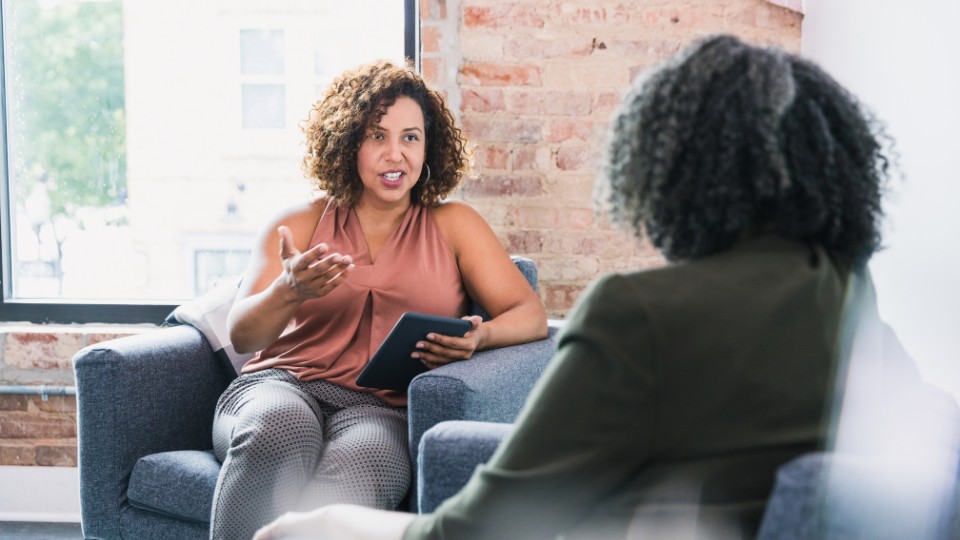We are very happy to publish our first research report, carried out by Maddy Sewel, a former research intern. The research analysed the acceptability and effectiveness of our cost-free psychosocial support made possible by our volunteer therapists to migrants and refugees, specifically those who are also part of the MigraCode Barcelona program of Open Cultural Center (OCC).
The research design
For this research, semi-structured interviews were conducted in Barcelona to investigate participant’s experiences of receiving and delivering a mental health program alongside the MigraCode program, a free coding school for refugees and migrants with the goal of using free technical education to help them find high-quality jobs. The sample consisted of nine individuals with a migration background that were either actively enrolled in MigraCode Barcelona, or were graduates of the program.
The interviews followed a two-part process, initially establishing a connection and learning about the participant’s background and then asking seven questions focussing on the feasibility and acceptability of the psychosocial support of Iguality. In addition, two therapists participated providing detailed responses about their experiences as volunteers.
With some users stating “it was one of the things that changed my life” (1008), and with therapists stating “I have seen the impact” (2002) and “I think it’s very helpful” (2001).
The interviews followed a two-part process, initially establishing a connection and learning about the participant’s background and then asking seven questions focussing on the feasibility and acceptability of the psychosocial support of Iguality. In addition, two therapists participated providing detailed responses about their experiences as volunteers.
MigraCode Barcelona offers free technical education to migrants and refugees through a large volunter community from the tech sector | Picture by MigraCode Barcelona / Open Cultural Center
The key results
The results found that the support of Iguality was received with much acceptability and effective for both therapists and users. Also, all users had similar understandings of psychology and the two therapists were coherent on the content of the support sessions and how they support participants. Additionally, all participants stated they felt safe at Iguality and MigraCode and in the mental health support sessions. Important to point out is that many participants acknowledged the stigma associated with mental health in their lives, but also that it didn’t significantly influence their decision to seek mental health support, expressing positive attitudes about it.
Moreover, the therapists mentioned that some of the best parts of volunteering with the program were personal development and enjoyment, while all participants reported that they find the program important, revealing common stressors impacting MigraCode students and migrants in general, including instability, social integration, employment, immigration status, adjustment disorders, anxiety and depression. Both users and therapists stated that the sessions were flexible and adaptable in terms of location and timing, and that the financial accessibility (i.e. the support being cost-free) was appreciated by users of the support.
Iguality offers weekly therapy to people who do not have access to public or private mental health care | Picture from Canva stock pictures
Conclusion
Overall, both therapists and users perceived the mental health support sessions to be effective, with some users stating “it was one of the things that changed my life” (1008), and with therapists stating “I have seen the impact” (2002) and “I think it’s very helpful” (2001). Users reported that the support was effective for daily life stressors and confidence, promoting stability and security and for discussing social connectedness and relationships (e.g., learning organisation skills and setting boundaries).
We are very happy that the research results show the importance and effectiveness of our work, and the relevance of collaborating with other great organisations like Open Cultural Center. We will utilise Maddy’s work to further scale our activities and improve our support to our target groups.
To read the full research report, you can access the PDF through the button below.




